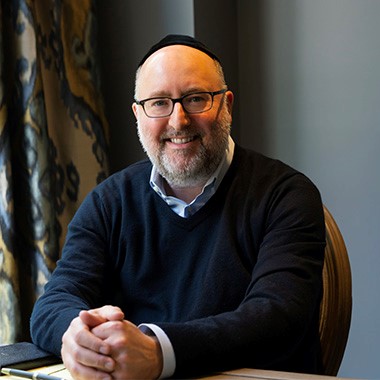In the Zohar, Rav Shimon Bar Yochai reveals that Moses and Jacob did not die. It sounds like a crazy statement at first, one that contradicts the Torah, which clearly states that Moses died and details the funeral and burial for Jacob. Even Rav Shimon questions himself in this section. What does it mean that Moses and Jacob did not die, and what does it mean for our own lives?
"Each of us has the potential to live in a reality without death."
The Zohar explains that death is merely an illusion that we experience from our limited perspective of the world. There exists a reality where death does not occur and life continues forever. When an individual achieves complete unity with the Creator, death does not touch him or her, and they do not die, but continue to live in this other reality, free of death and pain. Moses and Jacob, because they had reached that level of total transformation, did not experience what we think of as death. It was only the people around them that perceived their death, because they were still living in the illusionary world.
The lesson here is that each of us has the potential to live in a reality without death. Knowing that it exists is the first step to reaching this reality. Then we have to do the difficult work of transforming ourselves completely.
Rav Ashlag further explores this idea of immortality in Ten Luminous Emanations. He teaches us that our souls come from the Creator and are made of the same essence as He, except for one very important difference: we, as humans, have the Desire to Receive for the Self Alone. This is the selfish side of us that wants things only for ourselves. We usually take for granted that people naturally have this selfish side to them, but as Rav Ashlag reveals, it is not really part of who we are or who we are meant to become. We are of the Creator and meant to become like the Creator, unified in thought and action.
This means that the Desire to Receive for the Self Alone is the one part of us that separates us from the Creator. Because the Creator is the source of life, anything that separates us from Him is a separation from life itself. This is what causes death within us. We die when we are finally completely taken over by our Desire to Receive for the Self Alone and become disconnected from the Creator.
The process of disconnecting is a slow one that we are often totally unaware of. Every time that we do an action that is of the Desire to Receive for the Self Alone, we pull away from the source of life. Imagine that we are tethered to the Creator by a series of ropes. Every time we commit a selfish action, we cut one of those ropes, until finally there is nothing binding us at all to the Creator. That is when our bodies die. When we are at the end of our lives, it is not that we have reached a level of ultimate selfishness, but rather that we have committed enough selfish actions throughout our lives that we are now fully disconnected.
"Through this process of transformation, they were able to achieve immortality."
On the other hand, every time we commit a truly selfless deed, we draw closer to the Creator, tightening those bonds. The righteous souls like Moses and Jacob were able to achieve this total unity with the Creator by completely transforming their Desire to Receive for the Self Alone into a selfless Desire to Receive for the Sake of Sharing. And through this process of transformation, they were able to achieve immortality. This is what the purpose of our lives is, to transform our desire.
We tend to think that there are selfish actions and sharing actions, and as long as we are within the realm of the sharing actions, we are okay. But according to Rav Ashlag, this is not exactly true. Even most people’s actions of sharing are still in the realm of selfishness, because we expect to see something in return, whether it be emotional, physical, or even spiritual. If our actions of sharing have an expectation of receiving, they are not true acts of sharing. Not only do these actions not draw us closer to the Creator, they actually have the opposite effect! What we think is an action of sharing can actually be detaching us from the Light of the Creator if our purpose is receiving something in the end.
This is an amazing and very scary revelation. If we understood that our selfishness is directly connected to death, wouldn’t we work harder to be selfless? This is why it is so essential that we look within ourselves to find our motivation behind our actions. Are we coming from a place of true selflessness or are we expecting to receive something for our act of sharing? We must look at the good that we do and cleanse it of any selfishness attached to it.
Rav Ashlag teaches us that we are meant to reach the level where we are completely attached to the Creator, just like Moses and Jacob, but it isn’t easy to get there. It is important that we strive to achieve that level of attachment, but it’s also important that we don’t beat ourselves up along the way, remembering that it is a lifelong process that is incredibly difficult to achieve. That is why we have the tools of study and prayer to guide us. Through our spiritual work, we can transform ourselves into more sharing beings and achieve true immortality.
Adapted from Michael's Berg's Ten Luminous Emanations Lessons 16 and 17.
